YOUTH IN REVOLT
Scuffles at Nigeria protest against worst cost-of-living crisis in a generationAlexis Caraco
Fri, 2 August 2024

Scuffles at Nigeria protest against worst cost-of-living crisis in a generation
Nigerian police fired tear gas at protesters in Abuja on Thursday as demonstrations broke out across Nigeria against the worst cost-of-living crisis in a generation.
Protesters carrying placards, bells and Nigerian flags were met with a heavy security presence on the streets of the capital, with police firing tear gas to disperse the crowds.
In Abuja, where a court granted an order late Wednesday to restrict the protest to a stadium, police repeatedly fired salvos of tear gas at protesters gathered in a district with mainly government offices.
Nigeria’s public officials, frequently accused of corruption, are among the best paid in Africa, a stark contrast in a country that, despite being one of the continent’s top oil producers, also has some of the world’s poorest and hungriest people.
Roads were blocked in parts of the country by either protesters carrying banners or armed security forces who were deployed overnight.
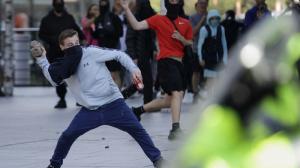
Nigeria anti-hardship protests turn deadly as police fire shots, tear gas
RFI
Fri, 2 August 2024 at 2:40 am GMT-6·1-min read
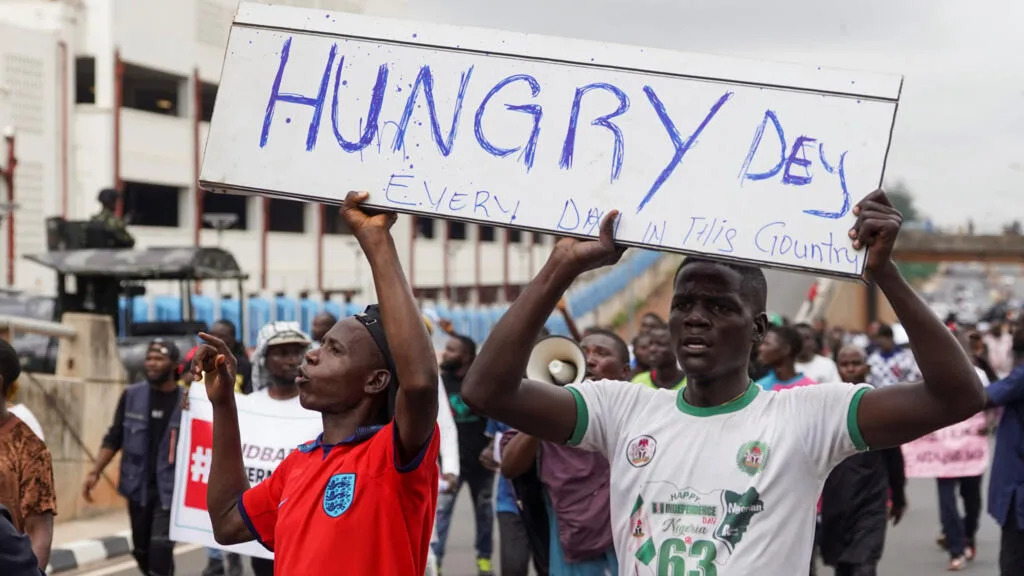
At least 13 protesters have been killed during mass protests in Nigeria over the country's economic crisis, a rights group claimed Friday. Nigeria's police chief defended the security forces, saying they had acted professionally.
Security forces fired gunshots and used tear gas to quell mass protests across Nigeria on Thursday, as thousands of mainly young people rallied against the country's worst cost-of-living crisis for years.
Authorities confirmed four people were killed by a bomb and hundreds arrested.
Kaduna state police spokesperson Mansur Hassan said on Thursday that the police had fired tear gas at protesters but had not used live ammunition.
Two people were killed in northern Niger state where protesters clashed with security forces after blocking a major road the local Daily Trust newspaper reported.
Amnesty International’s Nigeria director Isa Sanusi said that it independently verified the 13 deaths that were reported by witnesses, families of the victims and lawyers.
In a statement released on Friday, police chief Kayode Egbetokun said his officers had not violated the “fundamental rights” of any of the protesters.
Increasing hardship
Protesters began demonstrating on Thursday in Abuja, the commercial capital Lagos and several other cities over economic reforms that have led to rampant inflation and inflicted increasing hardship on ordinary Nigerians.
The "day of rage" saw youths demonstrating in the city of Maiduguri, the hotbed of a militant insurgency in the northeast of the country, in the face of a heavy security presence.
Rights group says security forces have killed 9 as Nigeria protests over hardship enter a second day
CHINEDU ASADU

Updated Fri, 2 August 2024 said Friday, while authorities said a police officer was killed and several others injured. (AP Photo/Sunday Alamba)
ABUJA, Nigeria (AP) — Nigerian security forces clashed with protesters during mass demonstrations over the country's economic crisis, leaving at least nine people dead, a rights group said Friday. One police officer was killed as the military threatened to intervene to quell any violence.
Meanwhile, four people were killed and 34 injured Thursday when a bomb went off in a crowd of protesters in the conflict-hit northeastern state of Borno, authorities said.
Police continued to fire tear gas at protesters in various locations, including the capital of Abuja, as they regrouped on Friday.
The military will also intervene if the looting and destruction of public properties witnessed on Thursday continued, Nigeria’s defense chief Gen. Christopher Musa said. “We will not fold our arms and allow this country to be destroyed,” Musa told reporters in Abuja.
More than 400 protesters had been arrested as of Friday, the Nigerian police said. Curfews were imposed in five northern states after the looting of government and public properties, but protesters defied the curfews in some places, resulting in arrests and clashes with police.
National police chief Kayode Egbetokun said Thursday night that the police are on red alert and may seek the help of the military.
Amnesty International’s Nigeria director Isa Sanusi said in an interview that the group independently verified deaths that were reported by witnesses, families of the victims, and lawyers.
The protests were mainly over food shortages and accusations of misgovernment and corruption in Africa’s most populous country. Nigeria’s public officials are among the best paid in Africa, a stark contrast in a country that has some of the world’s poorest and hungriest people despite being one of the continent’s top oil producers.
The cost-of-living crisis — the worst in a generation — is fueled by surging inflation that is at a 28-year high and the government’s economic policies that have pushed the local currency to record low against the dollar.
Carrying placards, bells, tree branches and Nigeria’s green-and-white flag, the mostly young protesters chanted songs as they listed their demands, including the reinstatement of gas and electricity subsidies that were canceled as part of an economic reform effort.
Violence and looting were concentrated in Nigeria's northern states, which are among the hardest hit by hunger and insecurity. Dozens of protesters were seen running with looted goods including furniture and gallons of cooking oil.
Egbetokun, the police chief, said officers “aimed at ensuring peaceful conduct." But, he added “regrettably, events in some major cities today showed that what was being instigated was mass uprising and looting, not protest.”
The police chief’s claim was disputed by rights groups and activists. “Our findings so far show that security personnel at the locations where lives were lost deliberately used tactics designed to kill,” Sanusi said.
Authorities feared the protests, which have been gathering momentum on social media, could be a replay of the deadly 2020 demonstrations against police brutality in this West African nation, or as a wave of violence similar to last month’s chaotic tax hike protests in Kenya.
However, the threats that emerged as the protests turned violent in some places did “not require that level of response” from police officers, said Anietie Ewang, a Nigerian researcher with Human Rights Watch.
Protesters Defy Nigeria’s Bid to Avoid Kenya-Style Dissent
Anthony Osae-Brown
Thu, 1 August 2024 at 8:45 am GMT-6·2-min read

Protesters Defy Nigeria’s Bid to Avoid Kenya-Style Dissent
(Bloomberg) -- Nigeria’s cost-of-living crisis worsened as protests mushroomed across the nation, resulting in the deaths of at least six people and belying President Bola Tinubu’s attempt to avoid a Kenya-style imbroglio.
Security operatives killed people in a town in the north-central Niger state and a number of others were injured, the Daily Trust reported. A 24-hour curfew was declared in Borno state in the north east after an explosion killed 16 people on Wednesday, the newspaper said.
Organizers of the demonstrations — whose social-media campaigning methods are similar to those that were recently used to mobilize protesters in Kenya — oppose government policies that have driven inflation to a near three-decade high. There’s a risk that the unrest could deter Tinubu’s administration from continuing to implement its economic-reform program, which in turn may crimp its efforts to attract foreign capital inflows into a country where 40% of its more than 200 million people live in extreme poverty.
Small groups of demonstrators took to the streets of Lagos and the capital, Abuja, on Thursday. Police fired tear gas in Abuja in a bid to disperse the crowds.
While bank workers reported for duty, some lenders closed their doors to customers to forestall potential attacks. Those that did open in Lagos were largely empty, as were the city’s usually bustling streets.
There were also pockets of protests in Kano, where a government-owned property was looted, and Katsina in the north, and Port Harcourt in the southwest, according to local media reports.
Protests that erupted in Kenya in mid-June culminated in hundreds of people storming parliament and forced the government to abandon measures aimed at raising more than $2 billion of revenue needed to plug the East African nation’s budget shortfall. At least 61 people have died.
Nigeria has experienced its own deadly protests in the past: at least 56 people were killed in rallies against police brutality in 2020, according to Amnesty International. The popular Lekki Tollgate in the wealthy Victoria Island area — where some protesters were killed in 2020 — was largely empty on Thursday amid a heavy police deployment.
The government has repeatedly tried to defuse calls for the nationwide protest, with Tinubu warning last week that “we do not want to turn Nigeria to Sudan.” Thousands of people have died and millions of others have been displaced since a civil war began in Sudan in April last year.
The Lagos State Police Command said on Wednesday that it safely neutralized an improvised explosive device in the city, while warning residents to be careful of suspicious objects and report them.
Sign up here for the twice-weekly Next Africa newsletter
--With assistance from Emele Onu, Arijit Ghosh and Mike Cohen.
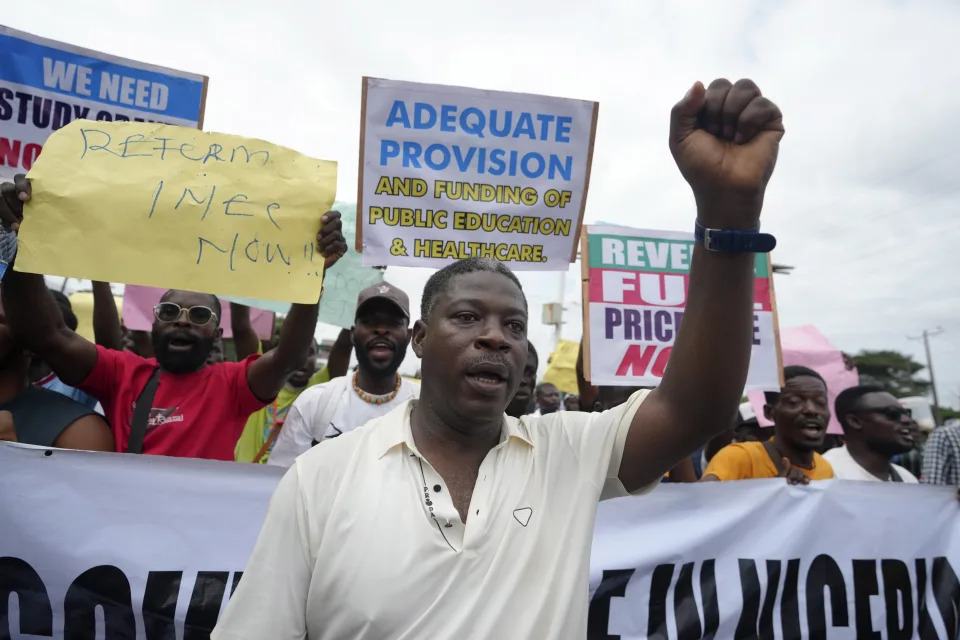
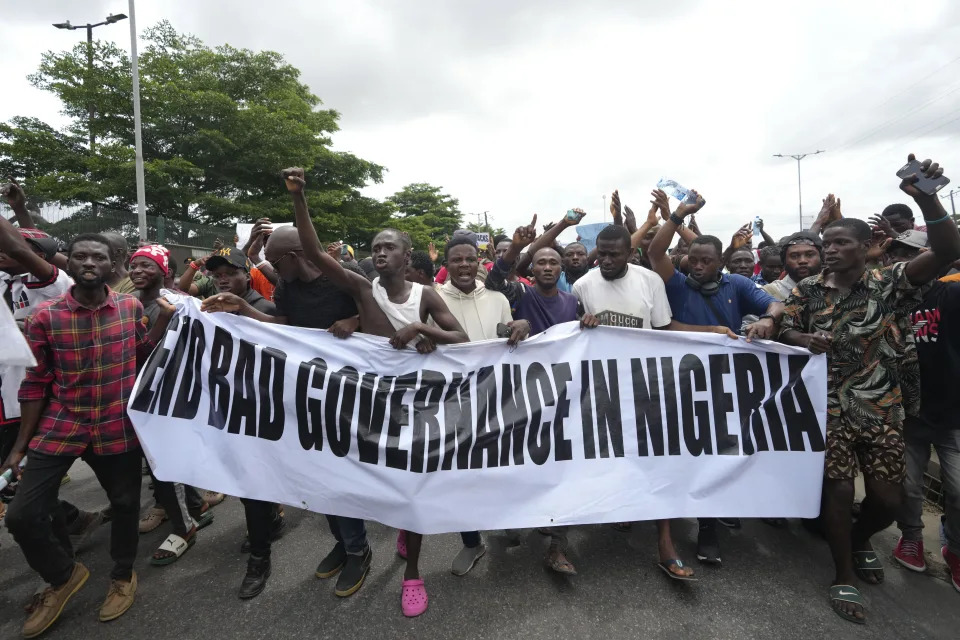
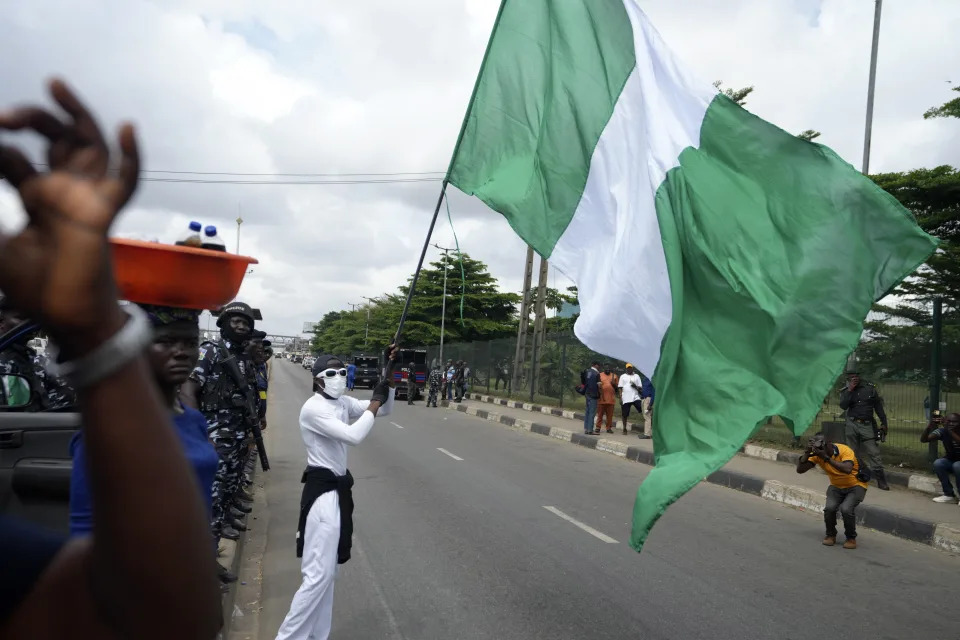
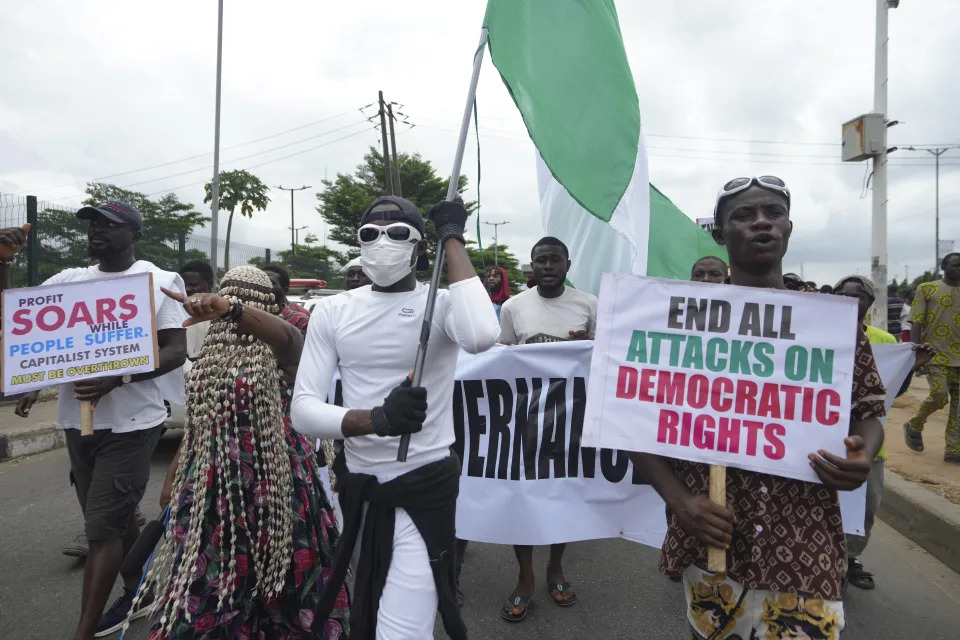
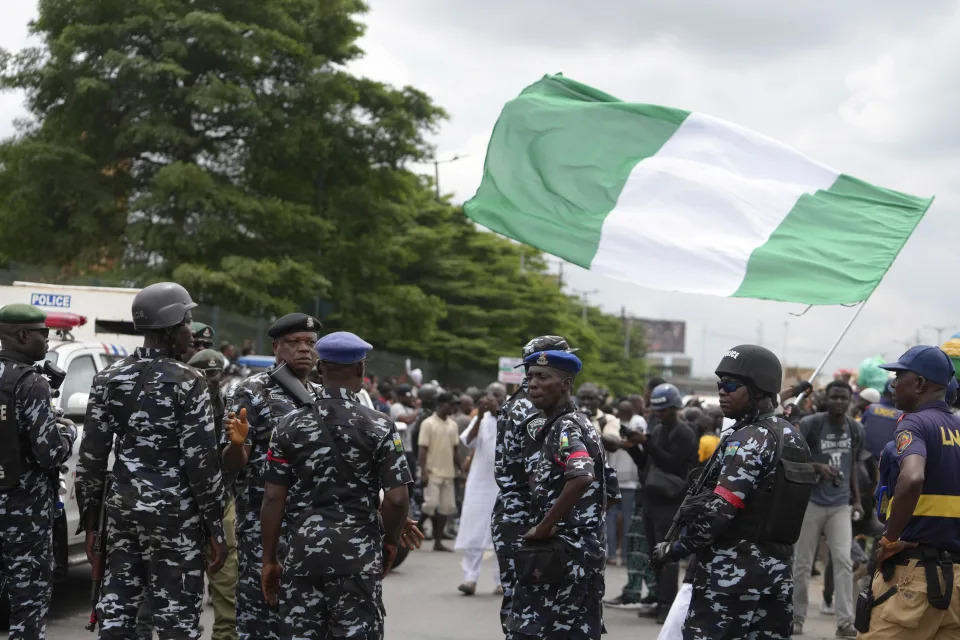
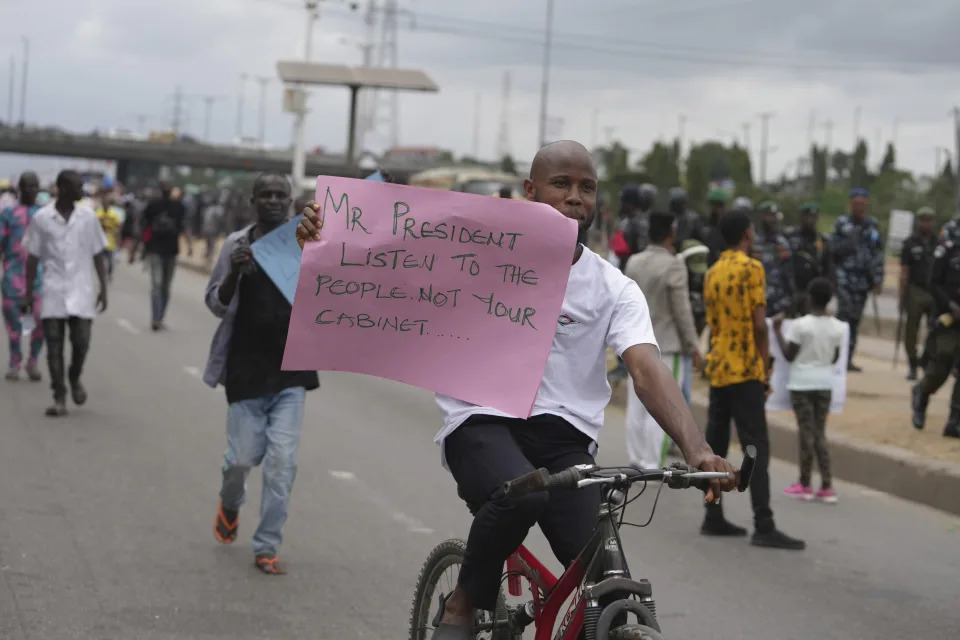
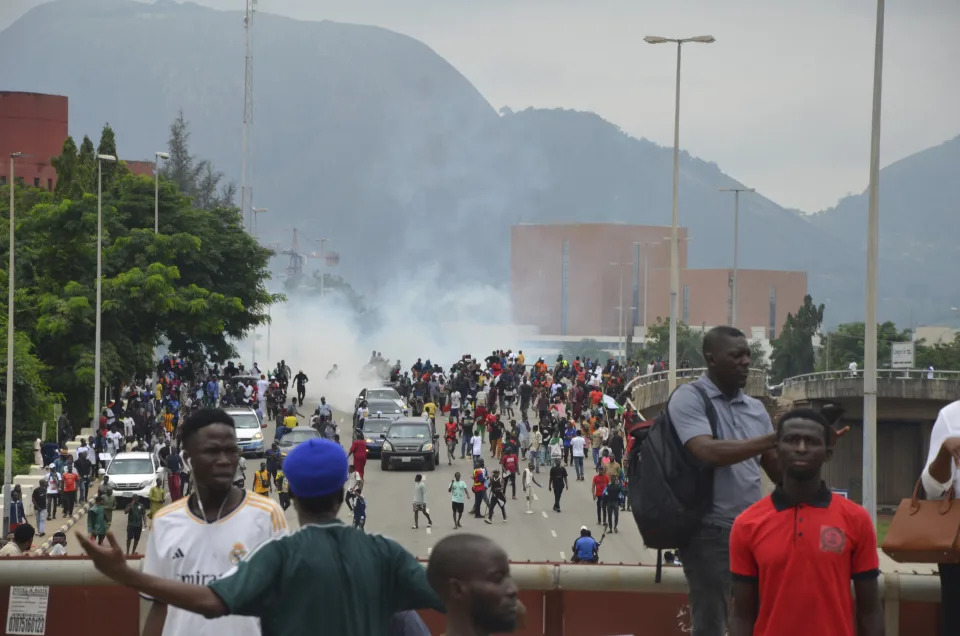

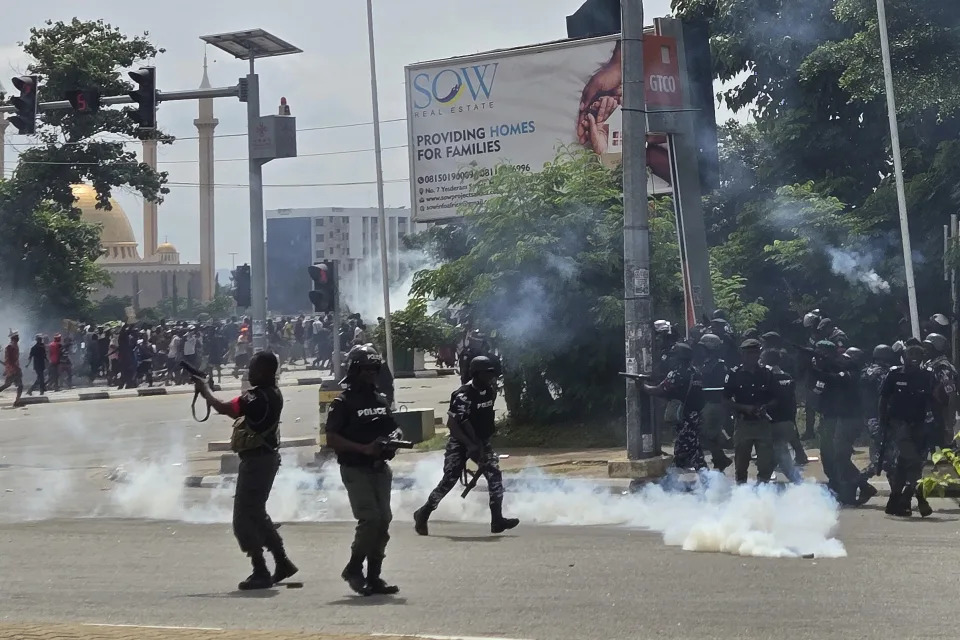

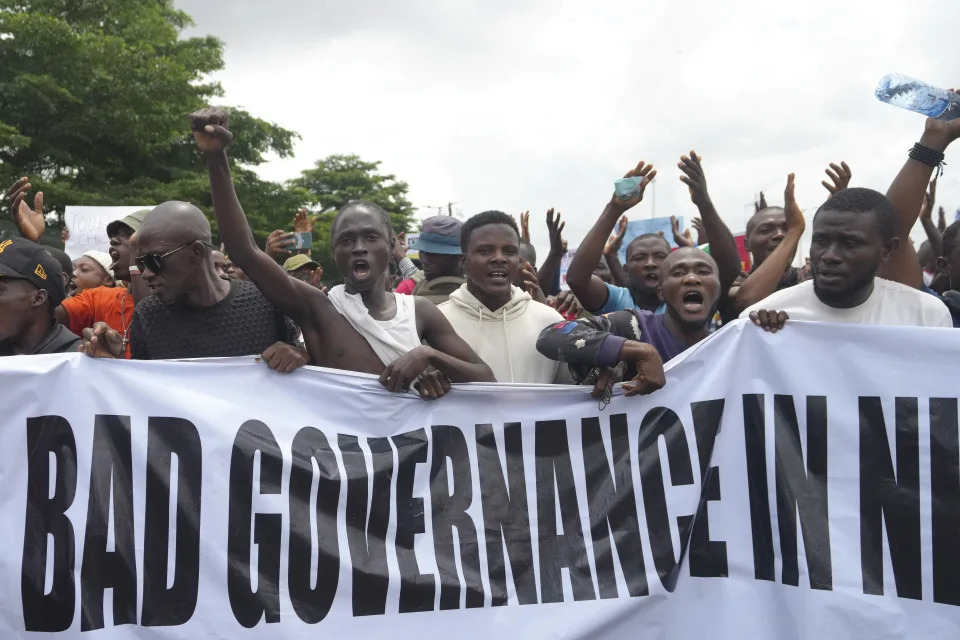
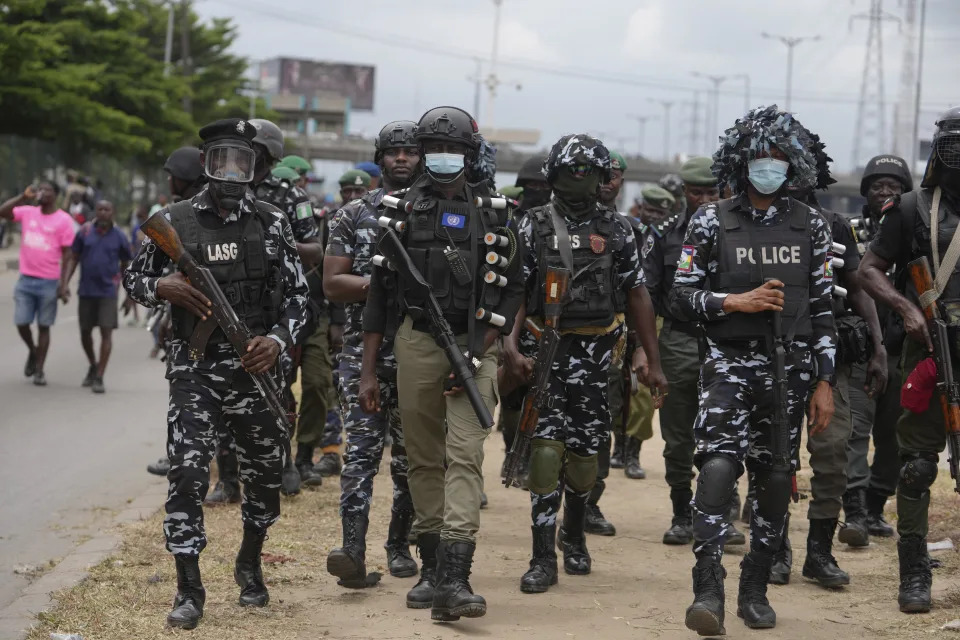
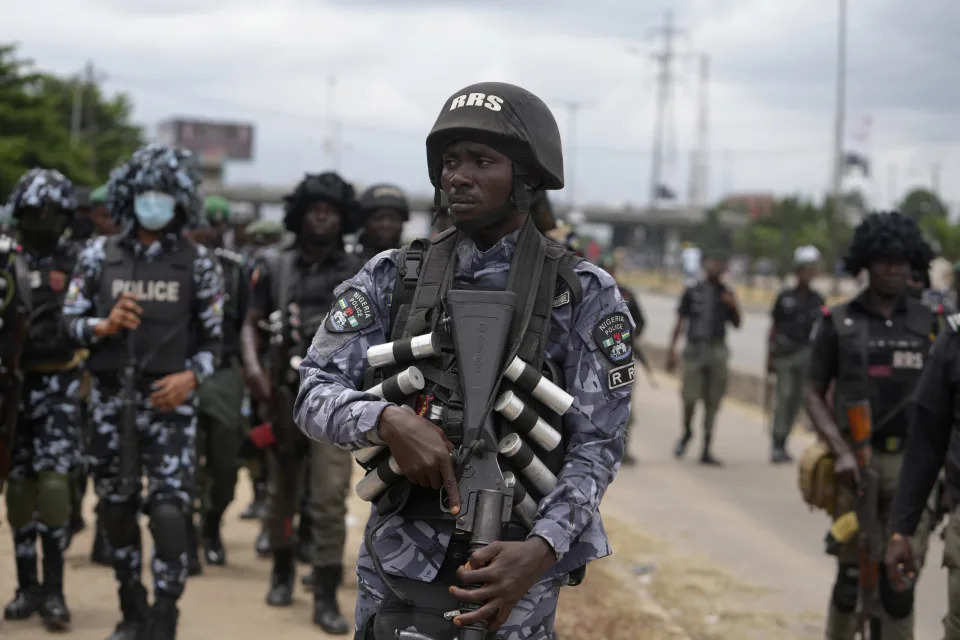
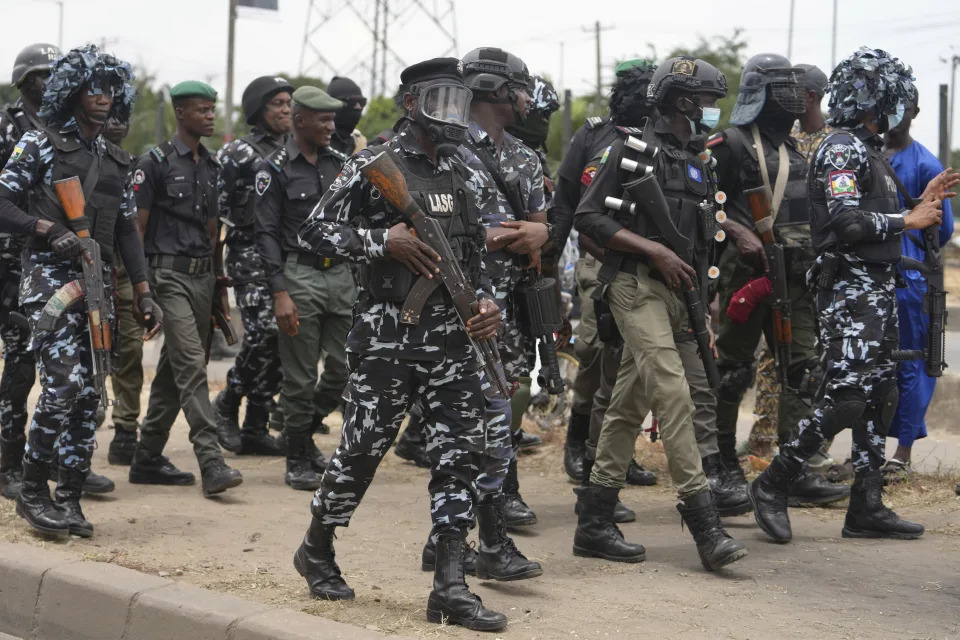


People protest against the economic hardship on the street in Lagos, Nigeria, Friday, Aug 2, 2024. At least nine people were killed by security forces as protesters clashed with police during mass demonstrations over the country's economic crisis, a rights group
No comments:
Post a Comment